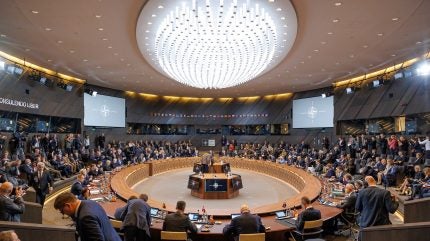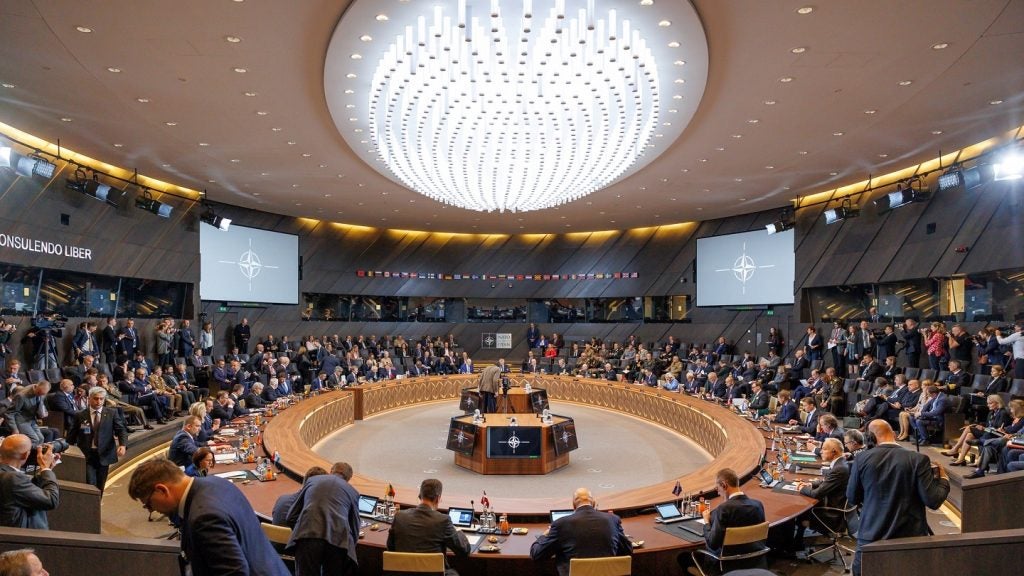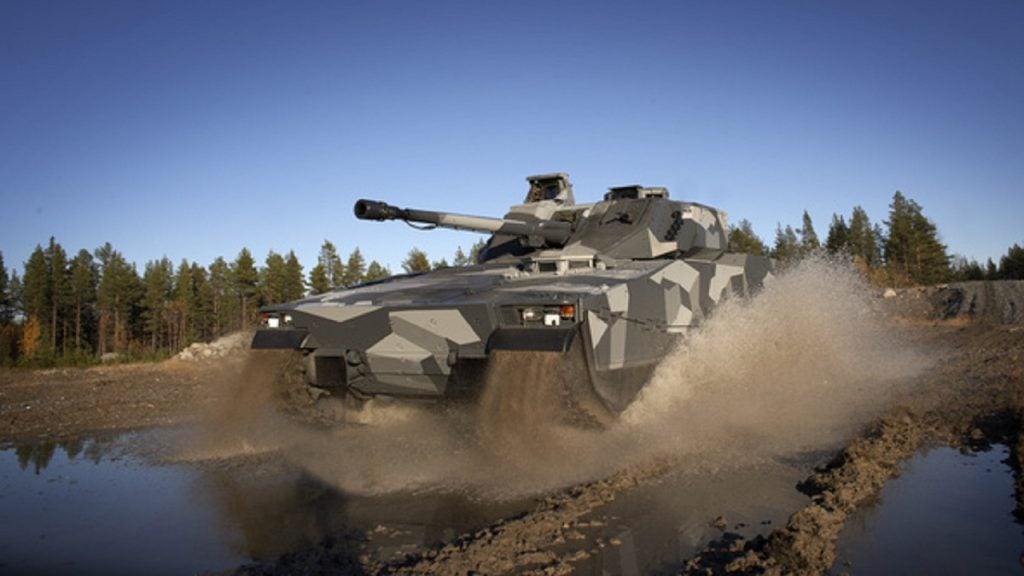
The announcement that the Prime Minister of the Netherlands, Mark Rutte, will be the next Secretary General of Nato has strengthened the notion that the UK has been thrust to the periphery of the alliance, as Washington continues to favour a Dutch-Scandinavian status quo at the top.
Announced by Nato on 26 June 2024, that Rutte was to be the next Secretary General of the alliance, the decision will see the retention of a strong northern European influence at the top of Nato’s political structures until the late 2020s at least. Rutte will assume his position on 2 October 2024.
Rutte’s three immediate predecessors are incumbent Secretary General Jens Stoltenberg, former Prime Minister of Norway, who by the time of time replacement will have been in office for a decade. Prior to Stoltenberg, the former Prime Minister of Denmark, Anders Fogh Rasmussen held the position from 2009-2014, with Jaap de Hoop Scheffer, former Netherlands Foreign Minister, in office from 2004-2009.
The Chair of the Nato Military Committee is also from the Netherlands, with Royal Netherlands Navy Admiral Rob Bauer having been in post since June 2021.
The selection of Rutte was somewhat unexpected, with current European Union chief Ursula von der Leyen thought to be favoured by Washington, which has an effective veto of which European official is appointed as Nato’s Secretary General.
How well do you really know your competitors?
Access the most comprehensive Company Profiles on the market, powered by GlobalData. Save hours of research. Gain competitive edge.

Thank you!
Your download email will arrive shortly
Not ready to buy yet? Download a free sample
We are confident about the unique quality of our Company Profiles. However, we want you to make the most beneficial decision for your business, so we offer a free sample that you can download by submitting the below form
By GlobalDataIndeed, Washington used its veto to block the UK in pushing its then Defence Secretary Ben Wallace, from the role. Not since George Robertson, former UK Defence Secretary, has the UK had one of its own positioned at the top of Nato (1999-2003).
Wallace stepped down from his role in the UK Government in 2023 and will leave politics following the outcome of the UK’s General Election on 4 July, declining to be a parliamentary candidate.
UK and Nato: out in the cold
The marginalisation of the UK within Nato’s power structure is stark as Washington, and perhaps France, appears to favour the appointment of continental European statesman to positions of influence.
In addition, the US and France occupy the leading military positions in Nato, further indicative that the time when London could be considered as Washington’s closest confident in Europe as long since over.
On 20 June, Nato announced the approval of the nomination of French Navy Admiral Pierre Vandier, to the post of Supreme Allied Commander Transformation, one of the alliance’s two strategic commanders and the commanding officer of Allied Command Transformation.
Vandier will succeed General Philippe Lavigne, French Air and Space Force, at a change of command ceremony at the Headquarters of Supreme Allied Command Transformation in Norfolk, Virginia in September 2024, Nato stated.
The Supreme Allied Commander Transformation has been a French military official since September 2009, occurring at the same time as France’s rejoining of Nato’s Military Command structure.
Nato’s other strategic commander is the Supreme Allied Command Europe (SACEUR), who is always a US military officer, heading up Allied Command Operations (ACO). The current SACEUR is US Army General Christopher G. Cavoli, who has been in position since 2022.
Nato will mark its 75th anniversary in July at its annual meeting, to be held this time in Washington, which will be the swansong for current Secretary General Jens Stoltenberg, who has been greeted effusively in recent trips to the US and Canada.
The UK has also come in for public criticism from US figures, with the US Secretary of the Navy Carlos del Toro stating in January 2024 that the UK should “reassess” its defence spending, amid a wholesale restructure of the British Army and reduction in personnel.
It is unthinkable that senior US officials in Washington would go on the record to criticise Nato allies such France, the Netherlands, or others.
In terms of metrics, the UK has the second largest defence budget in Nato, spending around 2.3% of its GDP on its military. France, by comparison, commits 2.06% of its GDP on defence, according to the latest figures from Nato.
Analysis by GlobalData indicates that UK defence spending will increase at a compound annual growth rate (CAGR) of 4.9%, going from $66.3bn to $80.4bn from 2024-28 period. The figures for 2024 along amounts to three times the expenditure of the Netherlands, in monetary value.
The UK also maintains one of two true-water navies in Europe, along with France, with nuclear-powered attacks submarines, ballistic missile submarines, and aircraft carriers, in its inventory.
Washington’s uneasy relationship with London
The UK’s response to this marginalisation will be closely monitored, particularly should the country’s upcoming General Election on 4 July see the opposition Labour Party, currently leading by a wide margin in the polls, come to power.
Nato’s renewed relevance, and with it the corresponding increase in defence spending seen by its members, is centred on the ongoing fallout of Russia’s invasion of Ukraine, bringing state-on-state conflict back to Europe for the first time in more than a generation.
The UK was the first Nato power to commit significant quantities of weapons to Ukraine and has persistently led the US in the early provision of next-tier military capabilities such as tanks, artillery, and long-range strike munitions.
It is possible that Washington, under the administration of President Joe Biden, has been irked by the notion that the US did not leads Nato’s initial response to Russia’s invasion of Ukraine. US political infighting has also, in large part, contributed to the success of Russian forces on the frontline in late-2023 and into 2024 as crucial financial and military aid was suspended.
In the near-term, it is unlikely that the UK’s current status as an outcast of Europe and Nato will end any time soon, with the promise of either a status quo in the event of a Biden victory in the US elections later in 2024, or else the return to power of anti-Nato former US President, Donald Trump.







